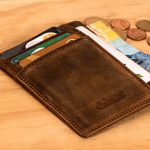Vacations create memories that last a lifetime. But across North America, surveys indicate that fewer people are cashing in on all of their vacation days. Some may be too busy to travel as much as they would like, while others might not be able to afford to travel. A gift of travel removes much of the expense of traveling and can serve as a catalyst one needs to go and explore.
Escaping to warm climates can be just what the doctor ordered when winter weather sets in at home. Although that first snowfall can make for a picturesque holiday season, there’s a good chance that after several storms and navigating icy roads, a getaway to sunshine and sand can help beat winter blues. When gifting travel this year, consider these great places to travel in January and February.
· Anguilla: Anguilla is a British territory in the Eastern Caribbean, just east of the British and U.S. Virgin Islands. It’s known for its long sandy stretches of beach and pleasant winter temperatures, which average 83 F. There isn’t much hustle and bustle, so this island destination can be the ideal place for relaxation.
· Australia and New Zealand: January and February are summer months in the southern hemisphere. These vibrant countries offer everything from costal charm to remote plains.
· Costa Rica: An abundance of wildlife, unspoiled beaches and rain forests draw visitors to this Central American locale. Travelers can hike active volcanoes or surf warm turquoise waters. The “dry season” arrives in December along with moderate temperatures.
· Honolulu: The weather in Hawaii tends to be beautiful year-round, but February can be an especially good time to travel to this U.S. island chain. Travel & Leisure says that hotels often slash their rates by up to 40 percent in February. This makes it much more affordable to gift a stay in Honolulu.
· Orlando: While holiday crowds peak in November and December, visiting Orlando and its main attraction, Disney World, is much easier when the crowds thin out in January and February. The slower season means affordable hotel rates and shorter lines for attractions.
· Montreal: Those who don’t want to escape the snow but embrace it might find a vacation in Montreal a welcome diversion. This cultured city offers Old World charm plus modern amenities.
· Puerto Rico: American travelers can vacation in Puerto Rico without needing travel visas or passports. While all of Puerto Rico is a sight to be seen, the capital of San Juan has thriving arts and culture.
 · St. Martin: Also known as St. Maarten, this paradise offers two different cultures for the price of one. The island shares French and Dutch territory status. Visitors who like to eat well and party into the morning often find St. Martin an ideal destination.
· St. Martin: Also known as St. Maarten, this paradise offers two different cultures for the price of one. The island shares French and Dutch territory status. Visitors who like to eat well and party into the morning often find St. Martin an ideal destination.
Gifting plane tickets, hotel reservations or upgraded meal plans can make winter vacations that much more enjoyable.




 Set up an account and track spending
Set up an account and track spending


